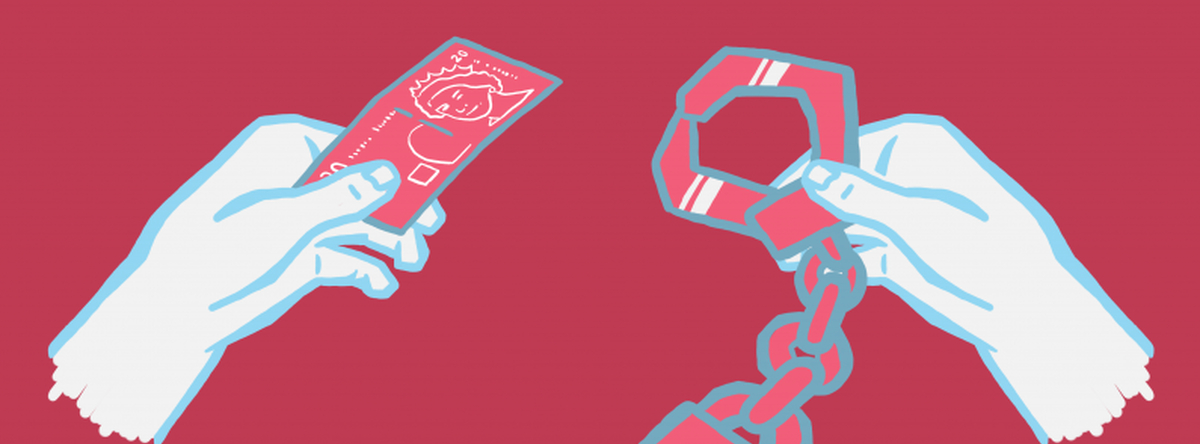The Scottish Government is currently consulting on challenging male demand for prostitution. The deadline for responses is 10 December.
Exploitation within the sex industry affects some of the most vulnerable in our society. CARE is working for better laws to protect them. This consultation is an important moment as the Scottish Government reconsiders its laws and policies in this area. Policy on prostitution can be very controversial, which makes it all the more important to take part so the Scottish Government hears the views of people who want to see a bold and compassionate response to protect people from the harms prostitution causes.
Consultation Guide
There are 9 questions in the consultation. We would particularly encourage you to answer four key questions. Questions (1, 3, 4 and 7). Below are some points that we suggest you make in answering each of these questions but if possible please try to put your answers in your own words as this will mean your response will be taken more seriously. You can just put ‘no comment’ in answer to the other questions in the consultation.
You'll need to respond directly on the consultation webpage.
Question 1: Do you agree or disagree that the Scottish Government’s approach to tackling prostitution, as outlined in this section, is sufficient to prevent violence against women and girls?
- We recommend that you agree that the Scottish Government’s approach to tackling prostitution should:
- Be driven by and in accordance with the Equally Safe strategy which requires policies for “supporting individuals to exit prostitution and challenging demand” for prostitution (Scottish Government Evidence Assessment of the Impacts of the Criminalisation of the Purchase of Sex: A Review February 2017 page 37)
- Be bold in responding to the issue (Consultation paper page 9)
- But that evidence of the harm caused by prostitution shows the current policies and laws are not sufficient to help people exit prostitution and challenge demand for prostitution. You might wish to note some of the following:
- Police recognise that violence and sexual victimisation are still common for women in prostitution, but rates of reported crime by these women are low compared with the real risks (Scottish Government (2017) 'Exploring available knowledge and evidence on prostitution in Scotland via practitioner-based interviews, pages 50 and 49-51)
- There is still evidence that women in prostitution in Scotland face “a range of risks and adverse impacts associated with prostitution in the short and longer term in relation to general and mental health, safety and wellbeing and sexual health” (Scottish Government (2017) Exploring available knowledge and evidence on prostitution in Scotland via practitioner-based interviews page 9)
- A report reflects that some people are still entering prostitution to fund existing addictions, but also that drugs and alcohol are often used as coping mechanisms to deal with the experience of prostitution (Scottish Government (2017) Exploring available knowledge and evidence on prostitution in Scotland via practitioner-based interviews page 9, also pages 53-54)
- We recommend that you ask the Scottish Government to go further by:
- Making purchasing sex a criminal offence and providing assistance to those seeking to exit prostitution;
- Following through on the motion for a Scottish model of legislation on prostitution adopted by the SNP Party conference in March 2017
Question 3. Which of the policy approaches (or aspects of these) outlined in Table 3.1 do you believe is most effective in preventing violence against women and girls?
- We recommend that you say that you support an approach which makes paying for sex a criminal offence, targets those who profit from or exploit others in prostitution and provides services and assistance to help people to exit prostitution. In doing so you might mention some of the following:
- An approach which makes paying for sex a criminal offence and provides assistance to enable people to exit prostitution is the only legislative and policy approach to prostitution (of those described in Table 3.1 in the Consultation Paper or seen around the world) which can address the objectives of the Equally Safe strategy on prevention and challenging demand
- A report for the Scottish Government in 2017 notes the positive evidence for making paying for sex a criminal offence in reducing prostitution and demand for prostitution, even with the limited information available stating: “The overall picture appears to be one of continued, but decreased demand for prostitution in countries where the purchase of sex has been criminalised” (Scottish Government Evidence Assessment of the Impacts of the Criminalisation of the Purchase of Sex: A Review published in February 2017, pages 23, 27 and 38)
- An evaluation of Norway’s law against purchasing sex found there has been a clear downward trend in prostitution since the law to criminalise the purchase of sex was introduced in 2009 and the level of human trafficking has been assessed as lower than it would have been without the law (Scottish Government Evidence Assessment of the Impacts of the Criminalisation of the Purchase of Sex: A Review February 2017, page 23)
- The official evaluation of the Swedish law in which paying for sex is illegal notes that the law has limited the involvement of organised criminals in prostitution in Sweden.
- The Swedish and Norwegian official evaluations have concluded that there is no evidence that the law has had a negative impact on people in prostitution – a criticism that is often made by opponents of the law.
Question 4. What measures would help to shift the attitudes of men relating to the purchase of sex? Do you have any examples of good practice either in a domestic or an international context?
- We recommend that you suggest deterrence measures as well as educational measures are needed to change men’s attitudes to purchasing sex. In answering you might like to note:
- Research with men in Scotland who have paid for sex indicates that making purchasing sex a criminal offence is likely to be the most effective way of challenging demand. The men surveyed gave the following top deterrents: being added to the sex offender register (89%); spending time in jail (79%); increased criminal penalties (72%); having their car impounded (70%) and higher fines (69%). These deterrents should all be considered in developing the new law against purchase of sex. (Challenging Men’s Demand for Prostitution in Scotland, Women’s Support Project 2008, page 27;)
- The 2017 report for the Scottish Government noted that changing the law has been shown to impact attitudes to paying for sex in Sweden and Norway with fewer men reporting paying for sex in anonymous surveys after the change in the law
Question 7. In your opinion, drawing on any international or domestic examples, what programmes or initiatives best supports women to safely exit prostitution?
- We recommend that you answer this question pointing to the need for measures to provide specialist support to assist women to exit prostitution. Ideally these measures should be in legislation. In answering you might use some of the following information:
- Providing support to help women to exit prostitution should go hand in hand with criminalising the purchase of sex and has been part of the Nordic approach since it was first introduced in Sweden and has been recommended by the European Parliament.
- Northern Ireland and France both have provisions regarding exit support programmes in their legislation which criminalises the purchase of sexual services, however to be effective there needs to be appropriate funding and dedicated specialist services rather than Northern Ireland’s approach of a directory of mainstream and voluntary sector services.
- Studies of women exiting prostitution have shown that a ‘case management’ approach which provides women with a single point of contact where both the emotional and practical issues related to exiting can be addressed in an individualised, targeted, and coordinated manner is most effective and that support which does not offer exiting as an option have the effect of keeping women in prostitution when in fact they want to leave (Matthews, R. Easton, H. Young, L. & Bindel, J. Exiting Prostitution - a study in female desistance Palgrave Macmillan 2014. pp140-141).
- The consultation paper notes that existing services available in Scotland’s major cities place varying degrees of emphasis on exit (page 20). The Scottish Government should ensure that all services receiving public funds include programmes to offer women meaningful opportunities and support to exit prostitution.
Find Out More
If you want to dig deeper into this cause, why not watch our policy expert, Louise Gleich and our CARE for Scotland National Director, Dr Stuart Weir, as they join host James Mildred to discuss challenging demand for prostitution in a recent CARE Session.

